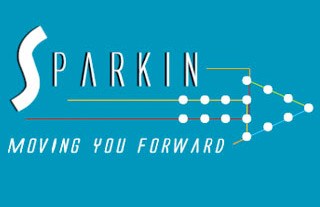Becoming one of your agency’s ‘most valuable’ employees
Camels walking through the ocean…That doesn’t happen at least until I saw it, I didn’t believe it. Something almost as unusual as the individual on the career express train that never derails; The individual that’s never been on the wrong side of an agency restructure. Like the camel it’s unusual but still possible. Some potential keys:
Know thyself – Know your strengths and where you can add value and continuously develop them. Have an integrated mindset but be niche a speciality too.
Team player – Help others in the agency develop. Generously share your skills and expertise.
New Business – The lifeblood of any agency – Getting involved in new business and being good at it, both raises your profile and perceived value.
Money – One of the best ways to be valuable to the agency is to be invaluable in helping it acquire and retain income.
Wow factor – Ensure that people enjoy working with you/make them feel good – You do this through being easy and fun to work with but also because you create and innovate.
Over and above – Word hard but where you can and even though already busy, aim to do more than is expected of you.
Active assessment – Know your KPI’s and your clients. Be active in self assessment. Don’t rely on others to do this.
Future mindset – Plan ahead. Know what you want to experience/learn in your new job in preparation for the one after. Make yourself a ‘shoe in’ for it!
Market value – Be aware of your external market value. Be aware of alternative career opportunities; This will give you more confidence in your current role.
Mix it up – Taking time off allows you to sustain focus, energy and passion
A ‘Complete’ Strategic Planner?
In an environment when strategic planners are expected to be a bit of everything, (quant and ’qual, digital plus analog, brand not simply channel, experience not simply story… I asked a number of strategic planning department heads what they thought is key.
What key quality matters most?
Of all the skills and attributes mentioned, it was ‘curiosity,’ that was top of the pile, Gabrielle Tenaglia, (Globality) reflecting others’ beliefs in the importance of a constant desire for growth. Closely following were attributes that allow the curiosity to be satisfied. ‘Generosity’ highlighted by Conner Huber, (McGarry Bowen) ‘Versatility’ by Shobha Sairam, (The & Partnership) while Andrea Ring (Big Spaceship) advocated the importance of confidence/strong point of view while Marta LaRock (Geometry) pointed to the importance of ‘passion’ as key. A number of you also mentioned ‘empathy’ as being pivotal to being effective as a strategist.
The good news is that despite all that is apparently needed for todays’ generalist to thrive, what you regard to be a truly effective remains what’s always been key, an interest in and ability to understand people.
Below are a few links to articles that throw further light on some of the traits you highlighted.
Enjoy!
Stuart
PS. Please let me have your ideas on areas you would like to be covered.
Articles and commentary that might be of interest…
- Curiosity is as important as intelligence
- Open-minded people have a different visual perception of reality
- Authentic Happiness – University of Pennslyvania
- Empathy is actually a choice
- Confidence matters as much as ability
- 5 must-read articles on empathy and UX design
- The power of generosity
- Versatility is the key to effective leadership
Purpose Driven Brands and Strategy
The reason why anyone talks about next career steps is because of growth or a lack of it.
What is typically sought includes more: Variety, autonomy, leadership opportunity or most obvious, the opportunity to develop strategic skills and experience.
Daily conversations for me invariably arrive at the subject of meaningfulness or, business and brand purpose. Yes, it’s not just a millennial thing!
Your peers are increasingly seeking to use their strategic problem solving smarts in areas, on causes and with brands that promote experiences that have a positive impact on people and the world at large.
There are some amazing companies out there whose mission is not growth and profitability for the sake of growth and profitability. There are entities that want to do much more….
The attached links are a few examples that you might be interested in.
Enjoy!
Stuart
So What Makes a ‘trusted advisor?’
Being A Good Boss
People don’t quit their jobs, they quit their bosses. And usually when they cease to see a path for progression or growth for which a good boss is instrumental.
This edition of Narrate is about managing and being managed.
A great manager can make a huge difference to both your day-to-day experience as well as your long-term prospects, but a great manager is not automatic. Most managers lack training or formal guidance for the managerial role. Of course, a bad manager is awful.
“Nine times out of ten, when an employee says they’re leaving for more money, it’s simply not true. It’s just too uncomfortable to tell the truth.”
(Alison McMahon)
So how do we get better at this? Fortunately, there’s great material here. The attached links are aimed at making the task of managing a tad easier and being managed, a little more effective. If nothing else, a shared article might facilitate a conversation that needed to happen.
Enjoy!
Stuart
So What Makes a ‘trusted advisor?’
18 Executives Share Their Secrets To Being A Great Boss
5 Simple Ways To Be A Good Boss No Matter How Busy You Are
7 Leadership Style The Best Bosses Use
Want To Be A Good Boss? Start By Understanding Why You Want To Lead
Good Bosses Switch Between Two Leadership Styles
How To Be A Great Millennial Boss
14 Signs Your Employees Secretly Hate You
12 Things Not To Say Or Do Around Your Boss
Standout by Getting Your Employer Working For You Copy
Whilst working at your current agency you should consciously pursue experience, education and connections that enhance your distinctiveness as a business problem solver. You should do what you are paid to do (help optimize the agency of which you are part) but also remember that not also leveraging the agency to build your own value, is a wasted opportunity.
Don’t Regret What Was
It’s only once you cease to work for an agency that you appreciate the many things that provides, some obvious and some less so:
A job;A Team; Resources, (financial/creative); Access; Training; Experience; Exposure.
Your working in an agency can be great for the agency’s and its clients business. It should also be a positive step for your career growth.
The Connection between Great Work and Your Success
Does a happy client and grateful agency means you will have an optimized fast tracked career? Perhaps.
If you have are known for being an active team player, a proactive individual that helps to resolve client challenges and optimize opportunities, does this mean you will have a fast-tracked career. Perhaps
Is your reputation for effectiveness and are the career opportunities afforded you directly linked. Perhaps
Why a great contribution Doesn’t Always Mean That You Benefit
For instance. If the agency loves the way you keep one client happy they may well be reluctant to move you to other accounts. Or, put another way, an agency whose priorities and timeline that differ to yours may prioritize training, work, performance and metrics that do not fairly reconcile your contribution, strengths or priorities; Or, you deliver but others claim the credit.
Delivering Consistently Means (In the absence of conscious career management)
If you do deliver consistently and others notice, you should survive (but don’t always).
If you are noticed you might not necessarily be rewarded at all or proportionately or in the way you might want to be.
Delivering tangible metrics yet without a career advocate, throws the recognition and aligned progression you deserve in to question.
Putting Your Employer to Work for You – How?
Accept responsibility for your career progression.
Always have an idea how you want to grow next even if you don’t know what you want your next challenge to be.
Have your own ‘purpose’ and pursue it, even if you don’t believe in the purpose of your employer, or its clients.
Ideally, anticipate what your next career step will be. The clearer you are about this the better able you will be to start harnessing the experience, knowledge and connections you will need to make you a shoe-in for the next role.
Attaining Trusted Advisor Status
Each year, unfortunately around Thanksgiving and as the end of the financial year approaches, many agencies prune their ranks. One way to bolster your job security? Pursue trusted advisor status. But what does it take to attain it?
IPA Effective work? Cannes awarded creativity? Making your client a success story? Some argue that you give the client what they want. Or is it what they don’t know they want? Either way, they have to trust you. They need to believe that what you recommend has their best interests at heart and not simply your agency’s bottom line. Who is best able to deliver on this promise?
The brilliant communicators? The great listeners? The connectors of the disparate? Of course, all the above but as with a great meal, great ingredients are not enough. How and in what order you combine them is key.
The attached links provide some expert views on how to bolster your position at this vulnerable time of the year.
Enjoy!
Stuart
So What Makes a ‘trusted advisor?’
- Trusted Advisor Marketing: Why You’re Asking the Wrong Questions?
- Scaling Trust: Marketing on a New Key
- Selling Strategies: How to Become a Trusted Advisor to the C Suite
- Trusted authority or Trusted Advisor – What and Why?
- 9 Traits of a Trusted Advisor
- Virtues of a Trusted Advisor
- Five Tips For Creating Relationships That Drive Sales









